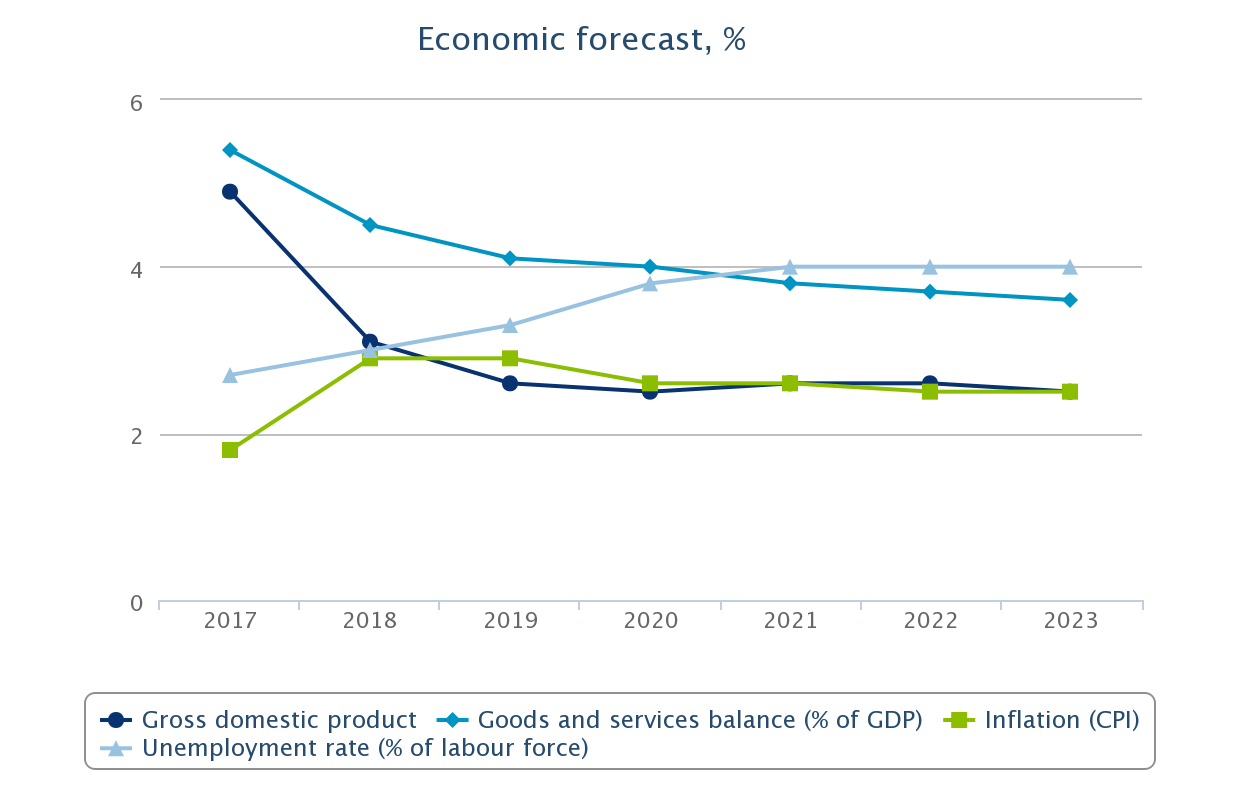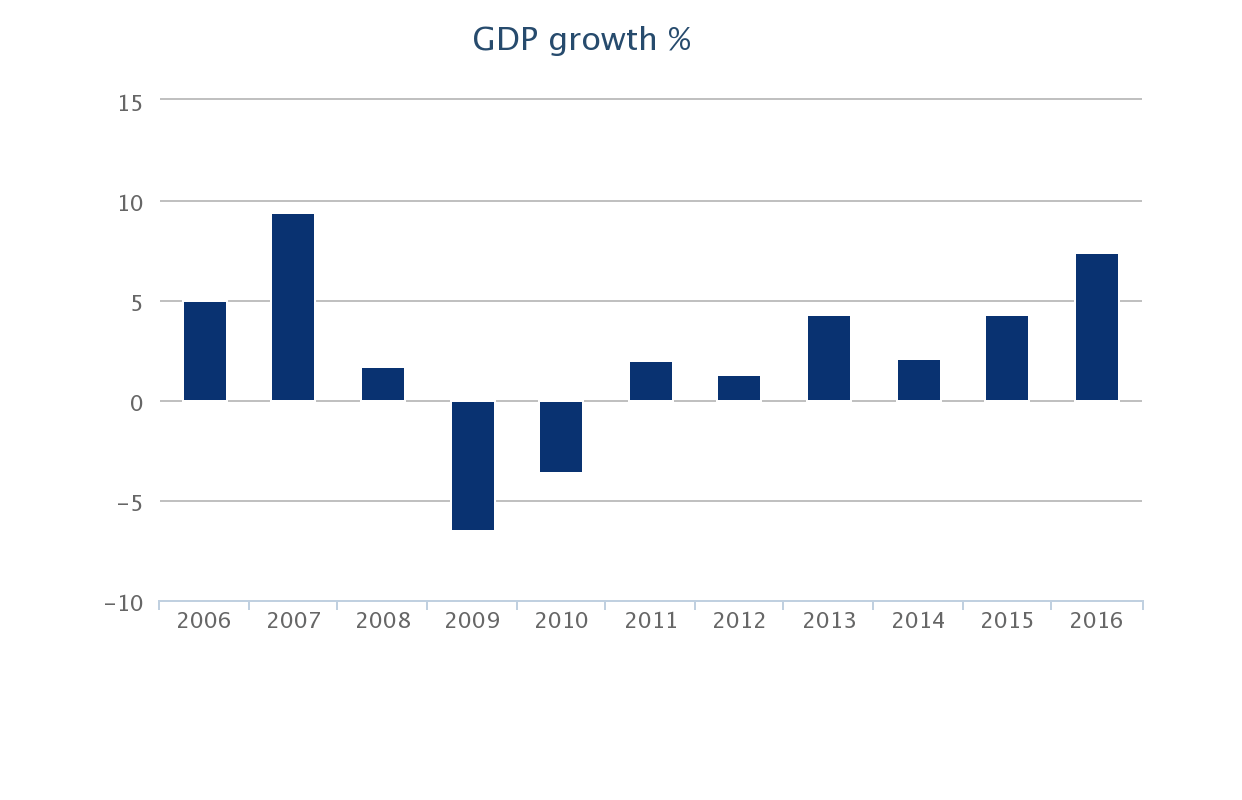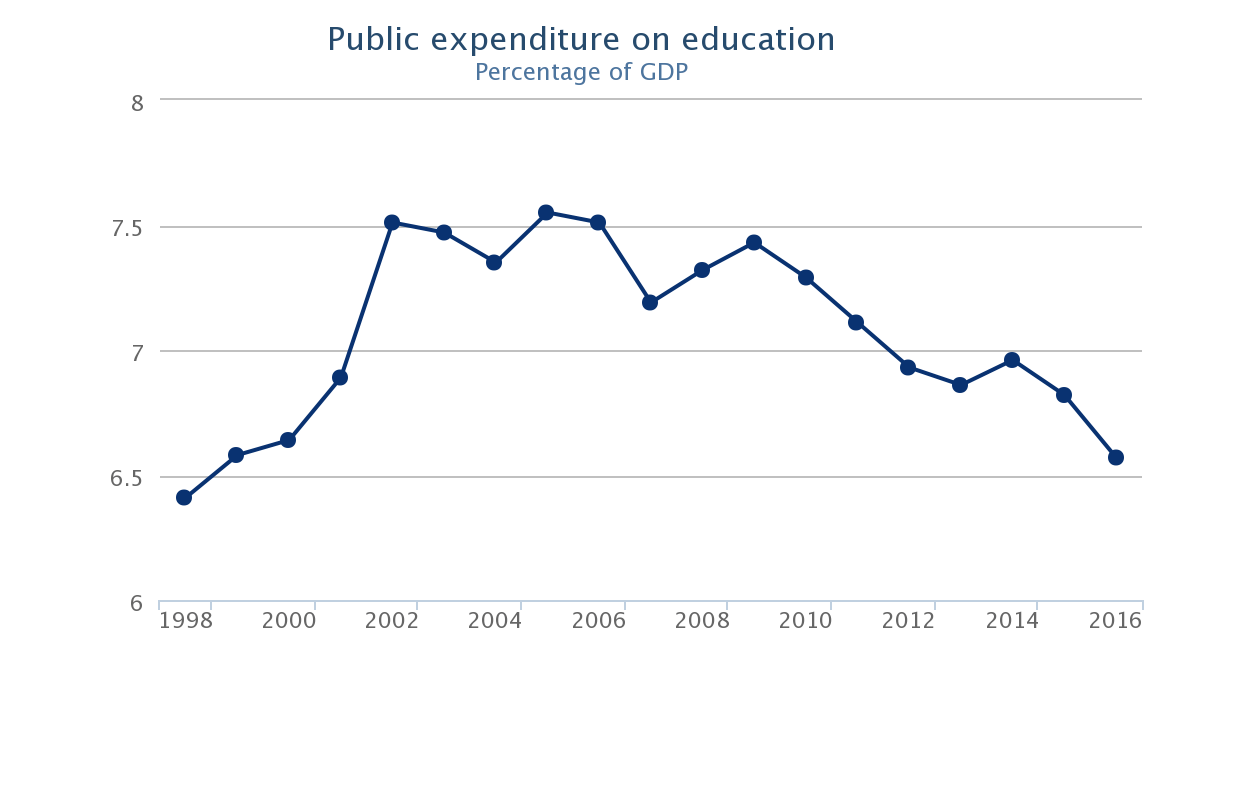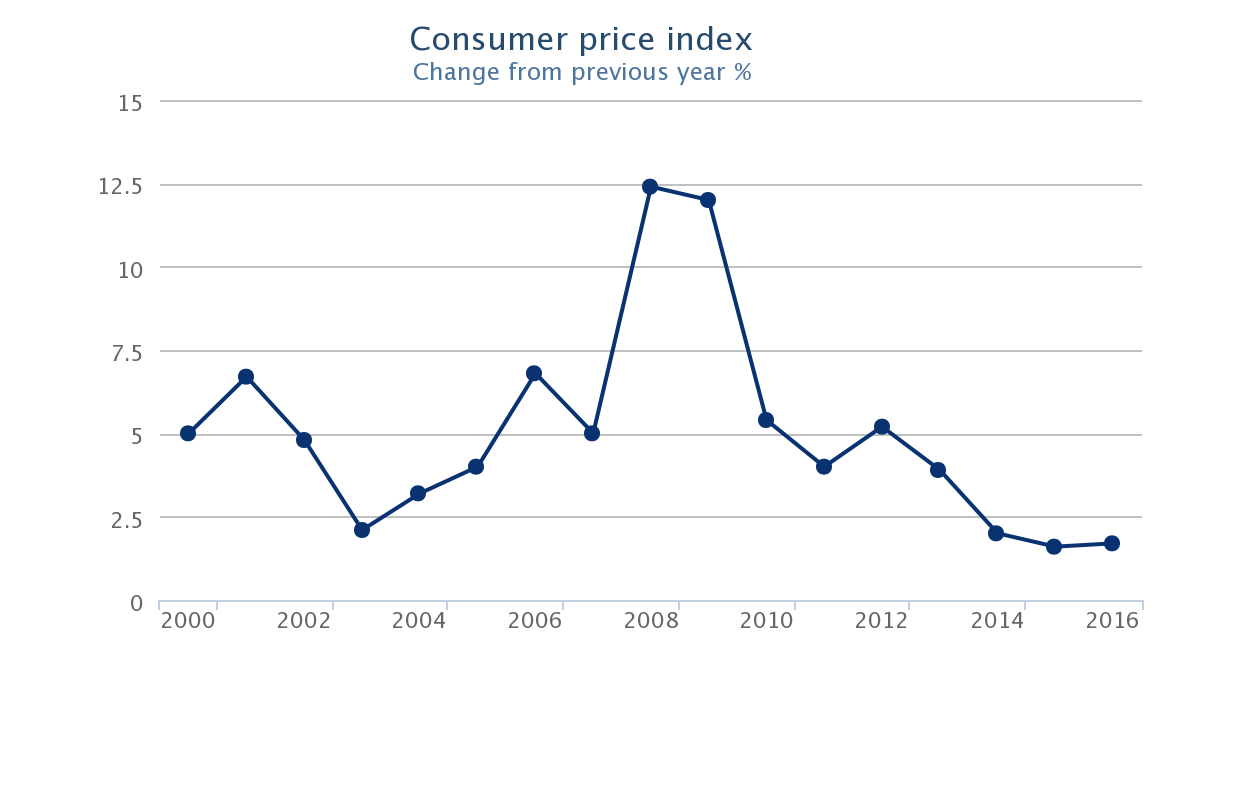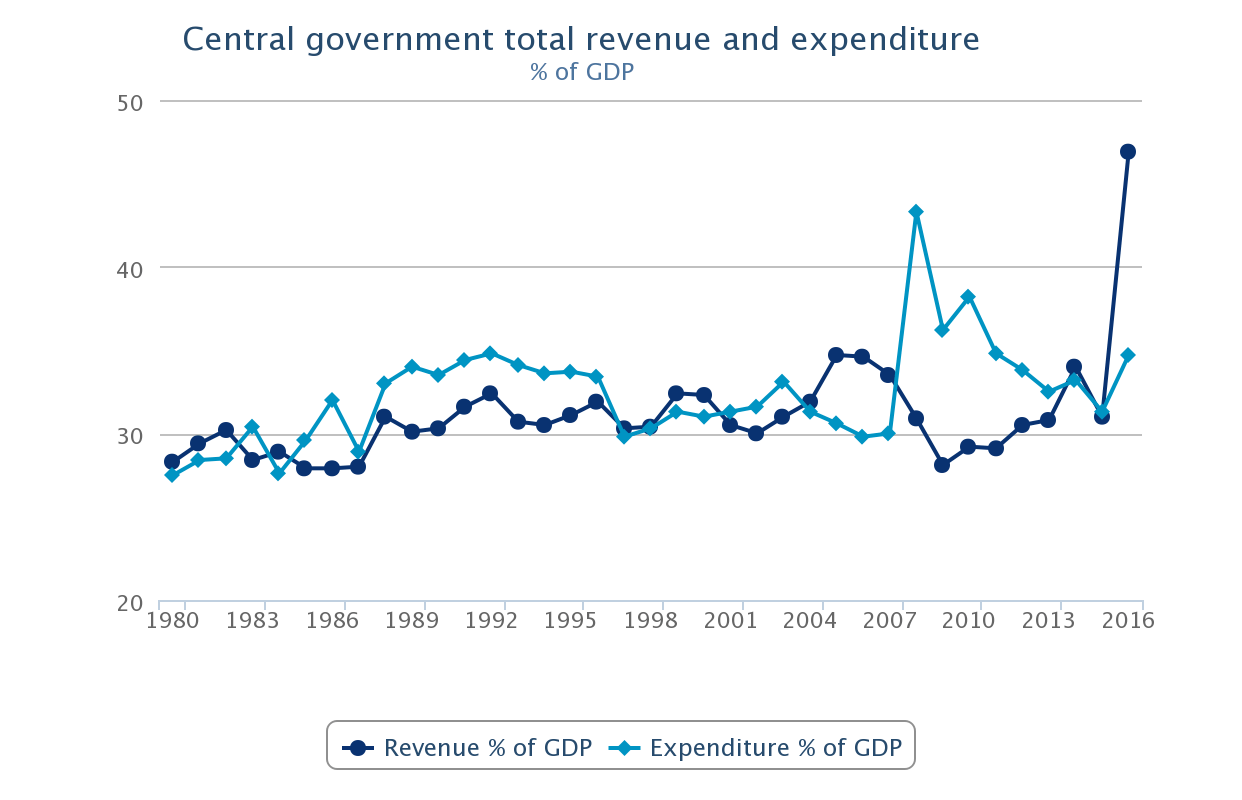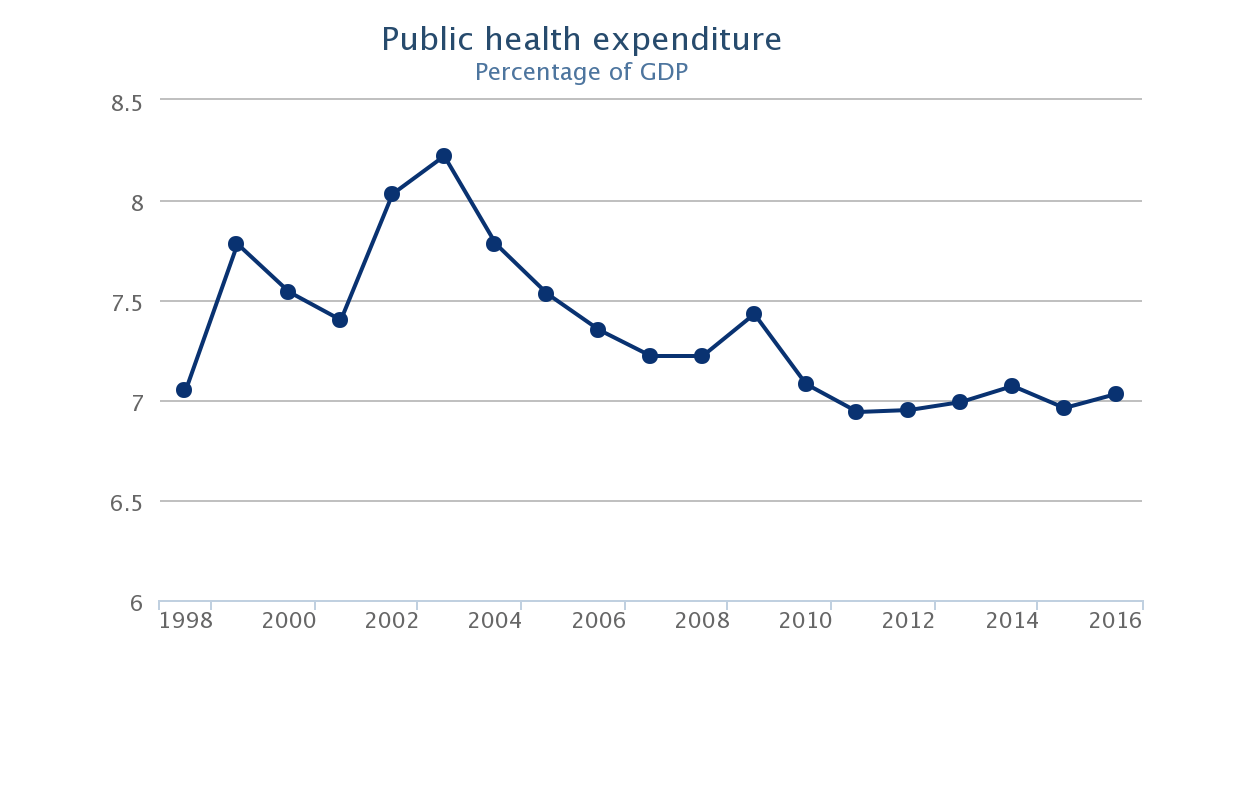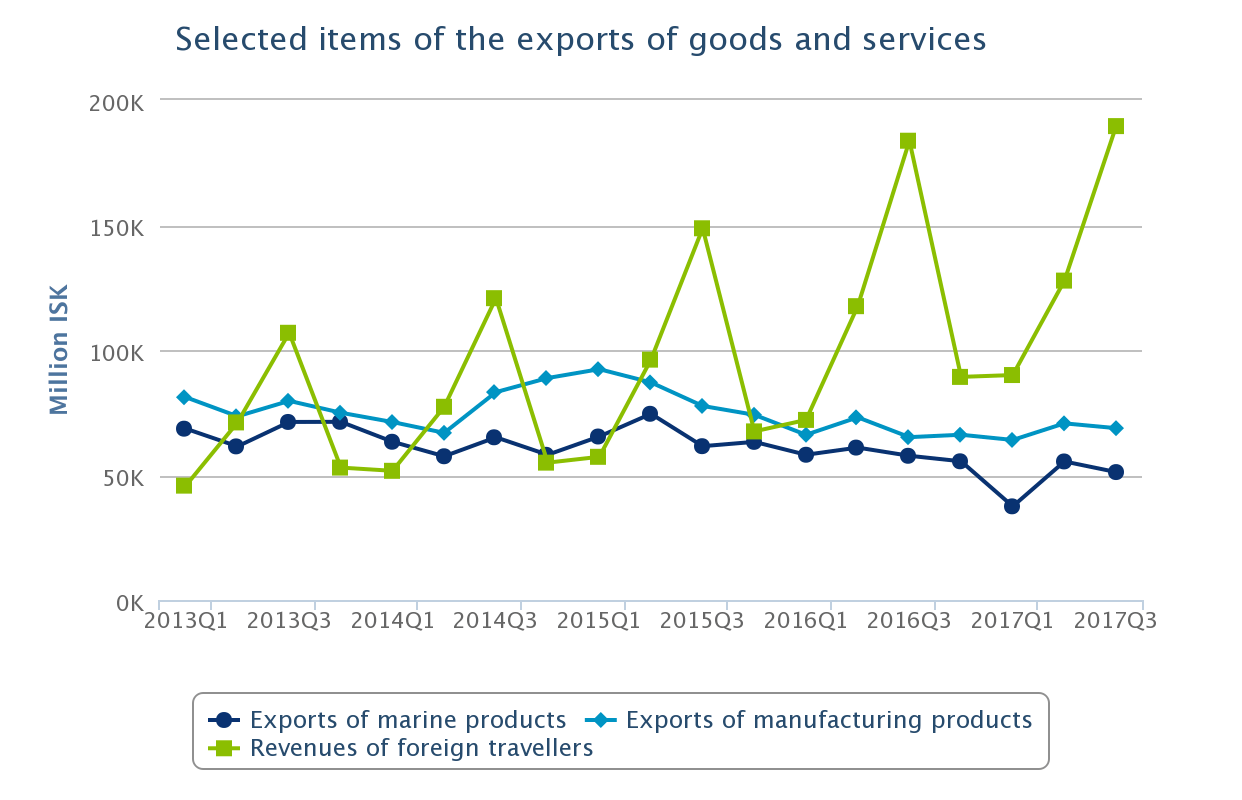Economy

 Economic forecast
Economic forecast
- Economic forecast 28/06/2024Economic growth slowed down in the second half of last year and in the first quarter of this year the gross domestic product decreased by 4% from last year. The economy is projected to grow by 0.9% this year, boosted by domestic demand. In 2025, GDP growth is expected to reach 2.6%, driven by private […]
- Economic forecast 16/04/2024Economic activity has slowed recently. The economy grew by 4.1% last year. Gross domestic product is forecast to increase by 1.5% this year, driven by private consumption, foreign trade and public consumption.
- The publication of the economic forecast postponed 18/03/2024The publication of the economic forecast, which was to be published tomorrow, Tuesday, 19 March 2024, has been postponed.
- Economic forecast 17/11/2023Iceland’s GDP is projected to increase by 3.6% this year. Growth dynamics are changing as GDP growth will be driven by net exports while growth in domestic demand is expected to ease, following robust growth for the last two years. In 2024 GDP is forecast to grow by 2.1% as export growth eases.
- Economic forecast 30/06/2023Iceland‘s GDP is forecast to grow by 4% this year and by 2.5% in 2024. Last year's economic growth was driven by domestic demand, but this year the contribution of net exports to GDP growth is expected to increase. In the first quarter, GDP increased by 7% from the previous year, but growth is expected […]
 Health
Health
- Alcohol consumption 2022 08/12/2023Alcohol consuption In Iceland was approximately 2,418 thousand liters of pure alcohol in 2022, compared with just over 2,475 thousand liters in 2021. The total consumption per capita 15 years and older was 7.8 liters in 2022 compared with 8.2 liters in 2021. Figures have been updated.
- 7.7% experienced depressive symptoms in 2019 15/03/2022A total of 7.7% of the Icelandic population, aged 15 years and over, experienced symptoms of depression in 2019. This proportion was slightly higher in Iceland compared with the EU average of 7.0% according to figures from Eurostat. Among European countries, the proportion was highest in France, 10.8%, and lowest in Serbia, 2.3%.
- Alcohol consumption per capita increased 9.1% between 2010 and 2020 02/12/2021In 2020, the consumption of alcoholic beverages in Iceland was 2,207 thousand liters of pure alcohol compared with 1,708 thousand liters in 2010. Pure alcohol consumption per capita was 7.41 liters in 2020 compared with 6.79 liters in 2010, peaking in 2017 at 7.75 liters. Figures have been updated along with figures for smoking habits.
- The number of hospital beds increased in 2020 26/11/2021In 2020, the number of hospital beds was 1,039 compared with 1,009 in 2019. The number of hospital beds per 100,000 inhabitants was 283.5 in 2020 but 279.8 the year before. Small changes were noted in the numbers of rehabilitative, long-term and psychiatric care beds. Figures have been updated.
- Hospital beds 2019 07/04/2020Figures have been updated
 National Accounts
National Accounts
- The purchasing power of disposable income per capita increased by 0.1% in the first quarter 19/06/2024Household gross disposable income is estimated to have increased by 9.8% in the first quarter of 2024, compared with last year‘s corresponding quarter. Disposable income per capita amounted to little over 1.4 million ISK in the quarter and is estimated to have increased by 6.8% compared with the first quarter of 2023. Due to inflation […]
- GDP decreased by 4% in the first quarter of 2024 31/05/2024Gross domestic product GDP is estimated to have decreased by 4% in volume in the first quarter of 2024 compared with the same period last year. Household final consumption expenditure increased by 0.2%, government final consumption expenditure by 1.2% and gross fixed capital formation by 2.4%; however, taking inventory changes into account, it is estimated […]
- The share of tourism in GDP at an all-time high 17/04/2024Preliminary results of the Tourism Satellite Accounts (TSAs) indicate that tourism as a proportion of GDP amounted to 8.8% in 2023 and has never been greater. For comparison, these estimates were 7.5% in 2022 and, on average, around 8.2% in the period from 2016 to 2019, prior to the Covid-19 pandemic.
- GDP production approach 2023 27/03/2024Following the publication of national accounts on the basis of the expenditure approach, figures based on the production approach are now being published. The figures show e.g. the share of individual industries in GDP. Figures for 2022 are preliminary and figures for 2023 first estimates.
- Purchasing power reduced by 0.4% in fourth quarter of 2023 21/03/2024Household gross disposable income is estimated to have increased by 9.9% in the fourth quarter of 2023, compared with last year’s corresponding quarter. Disposable income per capita amounted to just over 1.4 million ISK in the quarter and is estimated to have increased by 7.5% compared with the fourth quarter of 2022.
